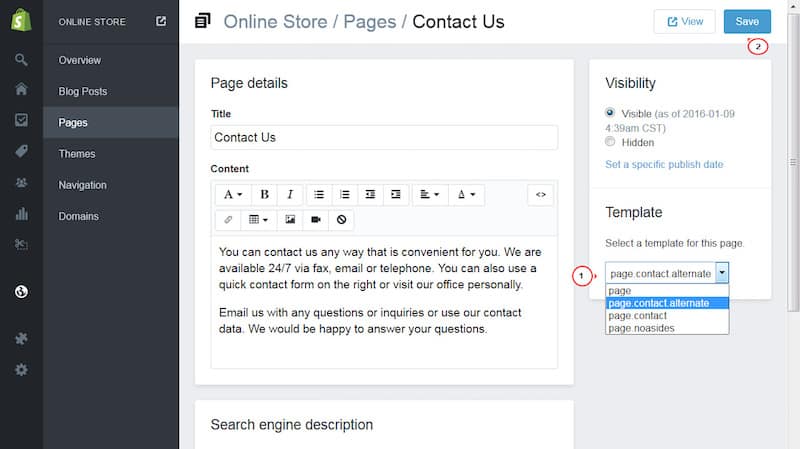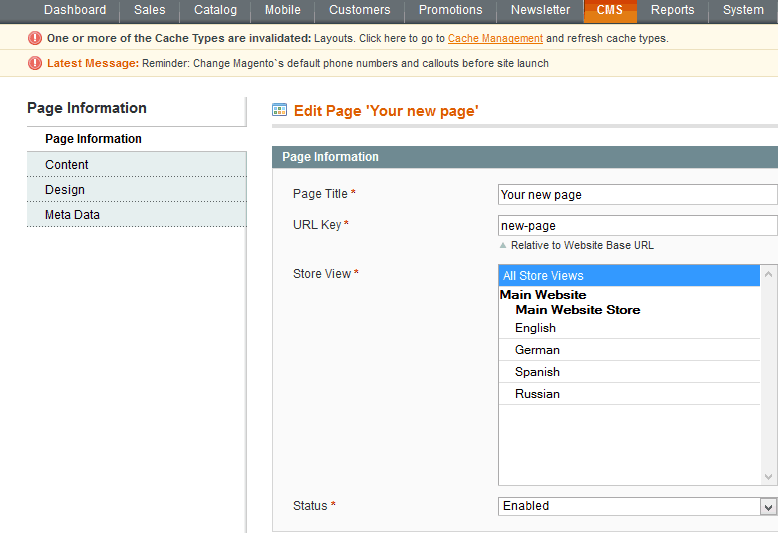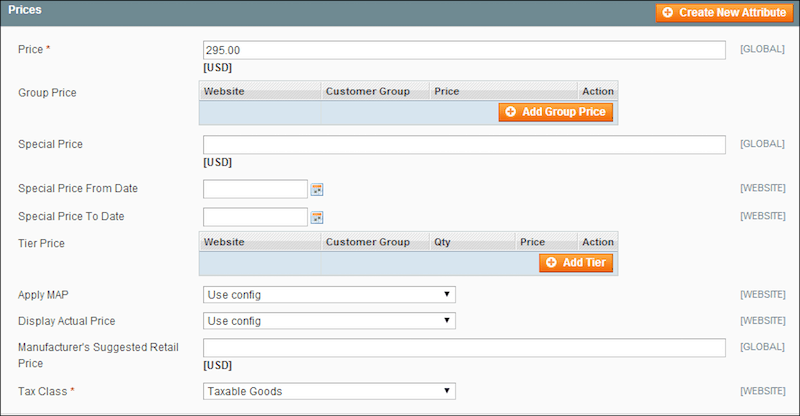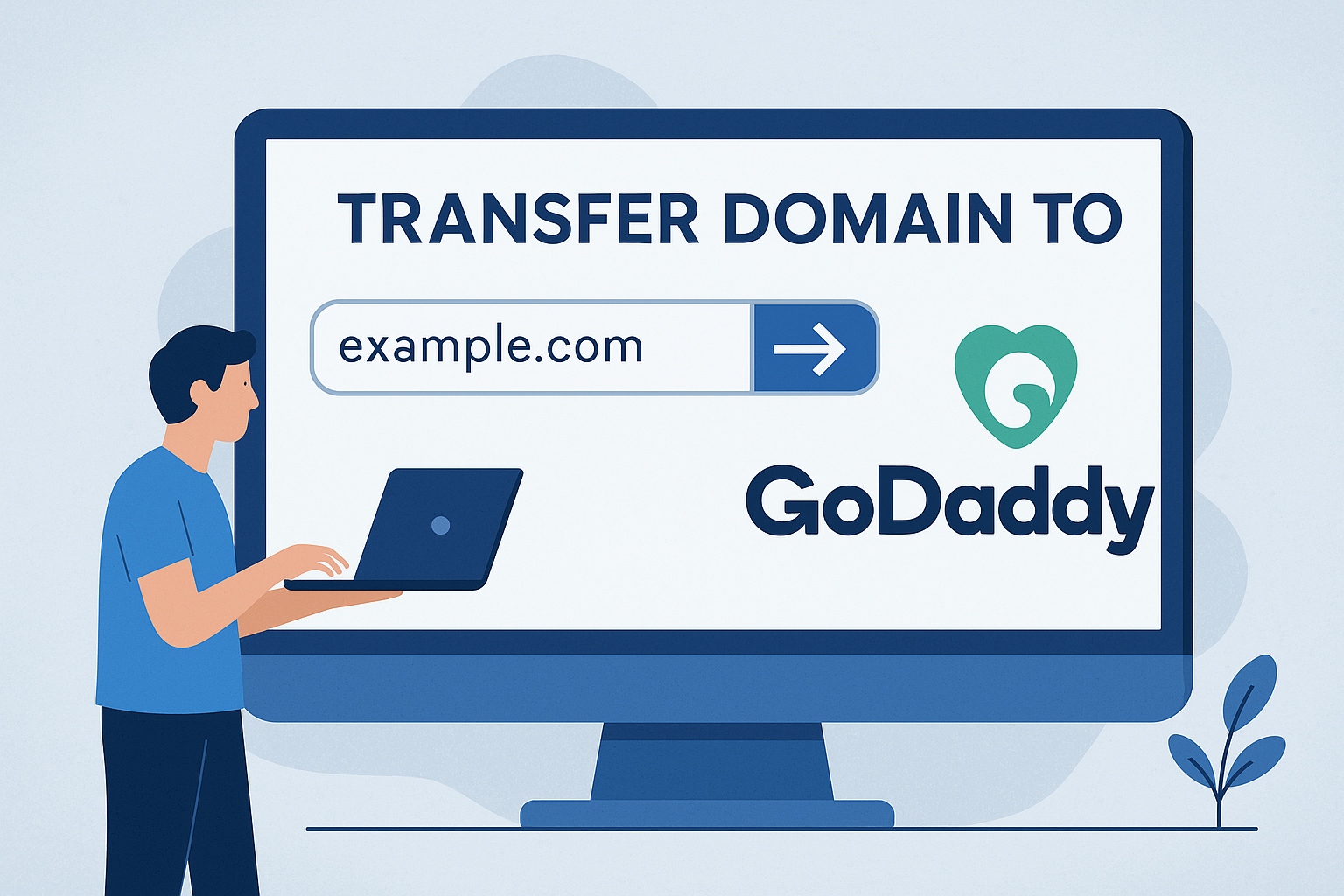Advertising disclosure
Hosting Canada is community-supported. We may earn a commission when you make a purchase through one of our links. Read Disclosure.
Magento vs. Shopify Comparison
 Entering the world of eCommerce requires a potential business owner to build an eCommerce website. There are many solutions for your future eCommerce empire. Chief among them are Magento and Shopify.
Entering the world of eCommerce requires a potential business owner to build an eCommerce website. There are many solutions for your future eCommerce empire. Chief among them are Magento and Shopify.
These options are quite different from one another.
Imagine a competition proprietor told you that you had to build a machine to win one million dollars.
The machine has to be built faster and must be better built than the machine that your competitor can build - or else you don’t get the money.
Sadly, your competitor has a lot of experience in building similar machines. You have no experience.
This is your competitor and his previous machine
The person who set up the competition offers you two sets of tools. The first one can build a perfect machine and is easy to use - it also explains how to build the machine. The second toolset is difficult to use and requires firsthand knowledge of how to build a machine but can also build a perfect machine.
Which one would you choose? Probably the first option. Which one would your competitor choose? Probably the first option.
TLDR;
Shopify and Magento are both viable options for eCommerce. However, our choice for the majority of people is Shopify, plain and simple. The balance in cost, functions, add-ons, and support make them an amazing all-around solution for the serial entrepreneur and the starter.
Not to say that Magento is can't work for you, because it can and it will. But you better have coding knowledge and a lot of time or alternatively, a lot of money to throw at a developer.
The Competitors
 On one hand, you have Shopify, our most recommended eCommerce platform that helps complete novices build an all-in-one eCommerce website.
On one hand, you have Shopify, our most recommended eCommerce platform that helps complete novices build an all-in-one eCommerce website.
One of the most widely used eCommerce solutions today and generally regarded as the best eCommerce platform.
On the other hand is Magento, the eCommerce platform owned by Adobe that is a solid choice when you’re a web developer or have a lot of capital at your disposal. Magento is no slouch.
The difference in what each solution offers is night and day.
There are two categories of eCommerce solutions:
- ☑️ The easy to use options - they make doing everything having to do with eCommerce a breeze.
☑️ I need a web developer or I need to be a web developer.
Shopify falls under the “easy to use” option and is the best option in that category. Magento falls under the “web developer needed” category and is not considered the best option in that category.
Beginners should not even begin to try to use Magento. We point all beginning eCommerce hopefuls to use Shopify instead or a handful of other nice options. Magento is aimed at the more complicated user - one with development skills and a lot of resources behind them.
Magento can be customized more than Shopify but the difference is negligible unless you’re trying to accomplish something extremely specific.
Similarities
Both services offer a complete solution for eCommerce. Many large brands use both platforms and one isn’t outright better than the other. Shopify appeals to a larger audience but that doesn’t mean that the two services don’t have similarities.
Who Shopify is For
Shopify is for 90% of all hopeful eCommerce entrepreneurs. That 10% is an important chunk of people and you may fall under it. Although, in all likelihood, Shopify will have your back when it comes to owning, running, and scaling your store.
The tools provided make setting up an online store easy while also offering a feature set that allows customizability, scalability, and functionality. Shopify is too difficult for 5% of the population and does not offer enough options for another 5% of the population.
There are options that are easier to use Shopify - but they don’t offer the same level of features, There are also options that offer more features than Shopify - these options are much more difficult to use.
Shopify occupies the space that attracts the most people. It offers full eCommerce functionality while making it simple.
The type of person that would want to use Shopify can be summed up in one sentence: They want to learn how to start an eCommerce store to make money.
There are three disqualifiers when it comes to people who would want to use Shopify, but they are rare.
- ☑️ You are selling under five products and value complete simplicity over everything else.
☑️ Blog came first and then WordPress. SEO is your bread and butter and eCommerce is a slight afterthought.
☑️ You have an insanely massive budget to throw at a web developer. Here’s a secret: There is a high probability of them still using Shopify.
If those don’t apply to you, then Shopify is 100% for you. The great thing is that they offer a free trial to check everything out.

When using Shopify there just aren’t very many pain points. You can easily implement multiple channel selling, the inventory system is simple and effective, and there are tools and gadgets to make every eCommerce option viable.
Who Magento is For
There is quite a learning curve for Magento users. Ability to read and write code is non-negotiable and most people that fall under this category would find themselves just using WordPress paired with WooCommerce.
If you’re fully against using a WordPress-based eCommerce solution like WooCommerce, and want greater control over your hosting provider, then Magento is for you.
Magento is more suited for existing companies that have large budgets to pay high level web developers. When it comes to paying a developer, it’s best to find a web developer that builds websites that you like and let them use whichever platform they’re comfortable with. If that developer uses Magento, then great.
If you do have coding knowledge or want to learn - then Magento could appeal to you because it is free to download.
The lone person that uses Magento would put a huge premium on customizability and massive feature sets. Everything is possible on Magento, you just have to figure out how to do it. There is a helpful community and help center available but there is no customer support to speak of.
Doing it yourself or having a lot of money is the only way to make Magento work. If you’re not willing to get your hands dirty or spend a lot of money then look elsewhere.
Magento is optimized to work with thousands of products, all of the traffic out there, and lots of sales. This means that scaling with this system is extremely sustainable.
The features available on Magento are longer than Shopify’s list and their app store is larger as well. The options are almost limited and they all come optimized for mobile traffic.
Magento offers such a wide array of features and customizability that perusing through the stores built on the platform will make you think that the websites have nothing in common.

The value that Magento offers that Shopify does not is allowing full control over how you deliver your customer experience. There are zero limits.
Pricing
The way pricing works on Shopify and Magento are completely different. Shopify is built around monthly payments and different tiers while Magento offers a free version and an enterprise version of the software.
Magento Pricing
One of the great things about Magento is that the open source version of the software is free to use. All you have to do is download it.

However, you will incur additional costs beyond Magento itself. First, you'll have to buy your own hosting service (Psst: read our web hosting reviews BEFORE signing up).
This will cost you a monthly fee as well as other potential costs. There are great hosting services - such as SiteGround - that won’t break the bank and offer great service. Just be aware that hosting needs to be scaled and with that scaling comes added costs.
On top of that, if you don’t know how to code, you’re going to need a developer. Good developers cost a lot of money - and your best bet is to find one that specializes in Magento.
One other thing that will need to be taken care of is payment processing. Luckily, there are solutions, like Braintree, that make this easy.
The good news is with the free version those are the only costs you’ll have.
There is also an enterprise version of the software. This would include hosting as well as help designing the store. This requires a company to inquire which will allow them to receive a quote.
The quote completely depends on the size of the store and business but the lowest we have seen someone receive is $18,000. A hefty sum.
Shopify Pricing
Each tier of pricing includes unlimited products, 24/7 support, the ability to sell in other sales channels, manual order creation, discount codes, SSL certificate, abandoned cart recovery, Shopify payments with fraud analysis, POS app, physical hardware, and robust app selection.
[ninja_tables id="3665"]Other costs involved with Shopify are paid apps, paid themes, and domain purchase. There are a large number of apps that are worth the cost as well as useful and beautiful premium themes that can truly elevate your store.
The great thing about Shopify is to have a fully functional store with some of the best features on the market it will only cost you $29 per month. As you scale up your store you can scale up expenses. Shopify also includes a custom enterprise level which allows more customizability for massive stores.
Conclusion
If you’re looking for an easy to use solution to build and grow your eCommerce store, look no further than Shopify. Shopify offer eCommerce store owners all the tools they need to manage their store without many barriers. Plus, their website builder is very robust and has the added benefit of paying a single entity for an end-to-end solution.
Shopify was built and designed by three Canadians who were just trying to build an eCommerce store. Instead, they built a platform that lets anybody build an awesome eCommerce empire.
Magento can be looked at more as an enterprise option where developers are available and money is not an issue.
Do you agree with our findings? Let us know in the comments section below!
Related Read: We made a detailed guide on How to open an Etsy Store












